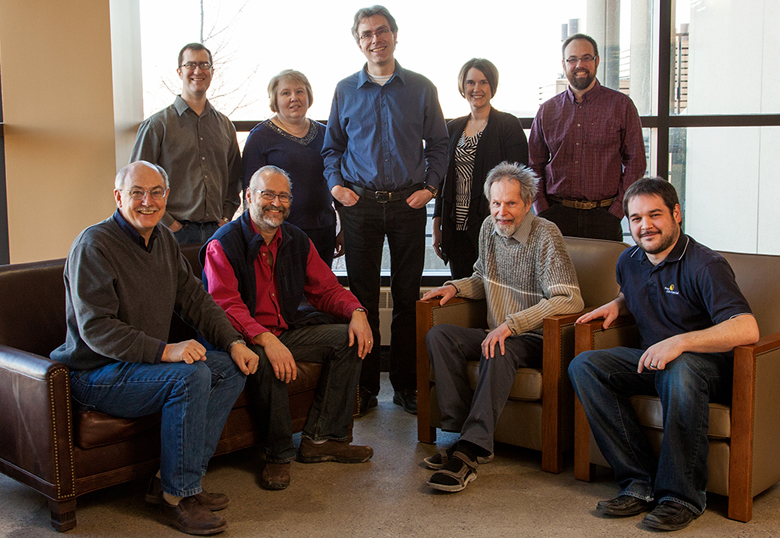A new initiative to advance the science of fluorine chemistry will make the University of Lethbridge Canada’s leading institution for studying and developing useful applications for this reactive element.

The newly launched Canadian Centre for Research in Advanced Fluorine Technologies (C-CRAFT) will serve as a hub for fluorine researchers across Canada and worldwide to collaborate with each other and share their expertise on fluorine, an element that has practical benefits for areas such as pharmaceuticals, agrochemicals, plastics, refrigeration, oil production, medical imaging and aluminum production. At the heart of C-CRAFT are the University’s state-of-the-art inorganic fluorine chemistry laboratories that focus on safely developing and handling highly reactive fluorinating agents, transferring the element to appropriate targets and creating new methods to characterize fluoro-materials. The centre will be led by Dr. Michael Gerken, an associate professor in the U of L’s Department of Chemistry and Biochemistry and an internationally recognized fluorine chemist.
“Fluorine chemistry is definitely a strength that is unique to the University of Lethbridge, so this centre is a way to build on that strength by getting together scientists who are interested in this chemistry in order to share knowledge, conduct research together and to provide services and expertise that are helpfulto industry,” says Gerken, C-CRAFT director. Over his 12 years at the U of L, Gerken has performed extensive research on fluorine, and his findings have been widely published in many leading chemistry journals. In addition to his research, Gerken teaches introductory, general and inorganic chemistry courses, and regularly supervises undergraduate and graduate science students interested in fluorine chemistry research.
A main advantage of C-CRAFT is its sophisticated facilities, which feature highly specialized equipment that make it possible to gain a deep understanding of the physical structure, reactive states and potential capabilities of fluorine. Included among them are a 300 MHz and a 500 MHz nuclear magnetic resonance spectrometer, a Raman spectrometer and an x-ray diffractometer. In April, the centre will get a new 700 MHz NMR spectrometer to allow for even more in-depth study of fluorine compounds. Through C-CRAFT, this equipment, along with instruction in fluorine chemistry techniques, will be accessible to interested researchers from other universities, research institutes and industry.
As C-CRAFT’s research activities grow, Gerken says it will enable the U of L’s Department of Chemistry and Biochemistry to better recruit top students, post-doctoral fellows and faculty members; secure funding for new projects from government agencies; attract industry partners; and ultimately, cement the University’s reputation for leadership in this niche area of chemistry.
“The establishment of C-CRAFT at the University of Lethbridge capitalizes on the research talents and teaching strengths of its members and students,” says Dr. Daniel Weeks, vice-president (research). “The U of L is one of a few places in Canada where students can be trained in aspects of advanced fluorine chemistry, and in the development of new technologies that have significant potential economic and social impact.”

